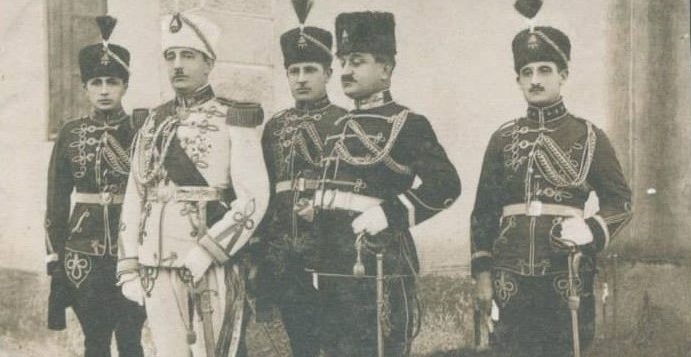My family, before I was born of course, was a big family, apparently a relatively big and rich family. My father, or better to say when my father was young and not married, was given the wife of one of his deceased brother. He had died, and according to tradition the wife was transferred to my father. But she came into my father’s house with a Xheladin Nushi, whom I don’t know, obviously I wasn’t born at that time… who was educated, he continued his studies.
They separated at one point and she moved to Tirana with Xheladin Nushi. I had the impression that they separated because he [Xheladin], being already grown up, did not want his mother to marry my father. I have this impression, but I don’t know those times, I haven’t lived them. I’ve heard from my mother that this may have been one of the causes of their break up and their move to Tirana. He continued his studies, he finished Economics at the University of Graz, where he got a doctorate in economics. He then returned as an advisor to the royal court of Ahmet Zogu. Meanwhile, he got married with a woman from Vienna. She came to Tirana, and she taught at the school Nënë Mbretëreshë. That is how it was called at that time, Nënë Mbretëreshë, a popular school, I later heard of it. They had a girl, she’s still alive and her name is Shpresa. But in the meantime, because they had to run from Enver Hoxha’s regime, her mother and she, while they were in Vienna where she was born, changed their names to secure a life. From her point of view… her name today is, she has an Italian name, but I can’t remember it. Her real name, she even says it, “I’m Shpresa,” but her last name of course, when she got married, she had to change it.
With the intermediation of the Yugoslav Embassy, I’ve searched for her during the 70s in Vienna, but I’ve searched for her under the name Nushi, Shpresa Nushi. While I was at a UNESCO meeting with the Yugoslav delegation, the Yugoslav Embassy told me that there was no Nushi family in Vienna. Since then, I gave up.
Suddenly, one day, I was in my house, I think it was 1999, a friend of mine from Vienna called me. “More,” he said, “I have a woman here who says she’s Shpresa, first name Shpresa and surname Nushi. She wants to know which Nushi are you, and from which Nushi she’s from.” “Yes,” I said, “I know her but she doesn’t know me, she is from our family.” I explained her origin and I connected with her and now we’re in touch. She was at my house a few times, her last visit was three-four months ago. We communicate on a regular basis, not every evening but once a week yes, via email and telephone etc. etc. She has two daughters and a son, she is a grandmother of course, she is older. She used to be a Professor of English at the University of Vienna, now retired.
